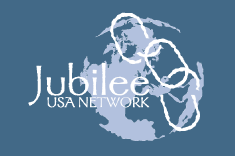Strong stuff from anthropologist Parker Shipton:
Juloo, “rope” to a Mandinko, means several things at once. It can refer to a small-scale trader, or to credit or debt. Every Mandinko knows the meanings are related. Traders are also lenders, and their loans, while sometimes useful like a rope ladder, also tie down a farmer like a rope around the neck. When rural people in The Gambia speak of juloo, in any of these uses, they consciously or unconsciously connote slavery. The Mandinko and other peoples of this small and impoverished West African river nation, an ancient trade route winding thinly through southern Senegal, have had occasion in history to learn quite a bit about ropes and involuntary servitude, and about debt. The linked images and overtones are not empty of emotion.
The source is a 1990 World Bank working paper,
How Gambians Save, which commenter
Kim Wilson pointed me to. For the book
What's Wrong with Microfinance, Kim contributed a provocative piece called "The moneylender’s dilemma" about rise and fall of Catholic Relief Services's involvement in microcredit. Shipton's point is not that all debt is bad, but that poor people are often wisely wary of it and like to save too. I'm confronting the dual nature of credit/debt now as I think about usury and the ethics of lending.The rope metaphor is linked to the Jubilee 2000 movement's call to "break the chains" of third world debt:

CGD blog posts reflect the views of the authors, drawing on prior research and experience in their areas of expertise.
CGD is a nonpartisan, independent organization and does not take institutional positions.





